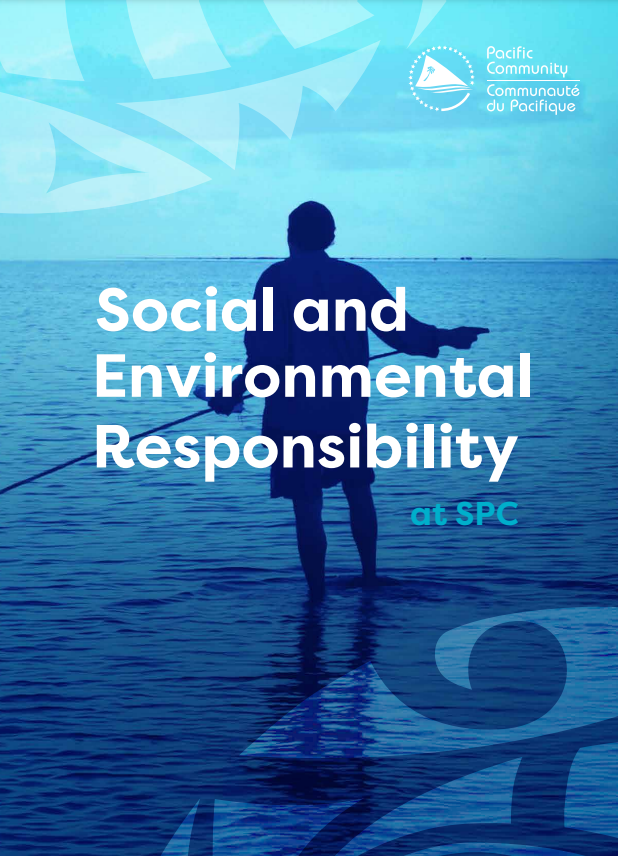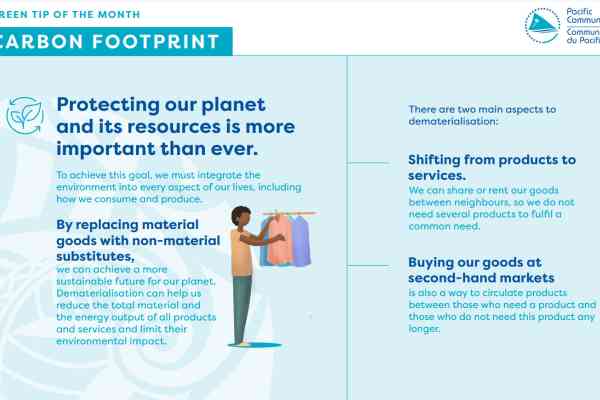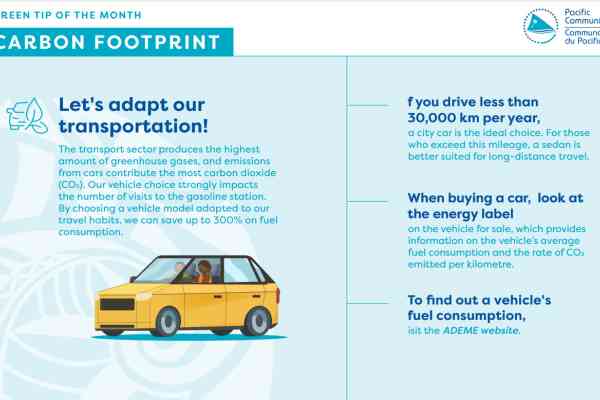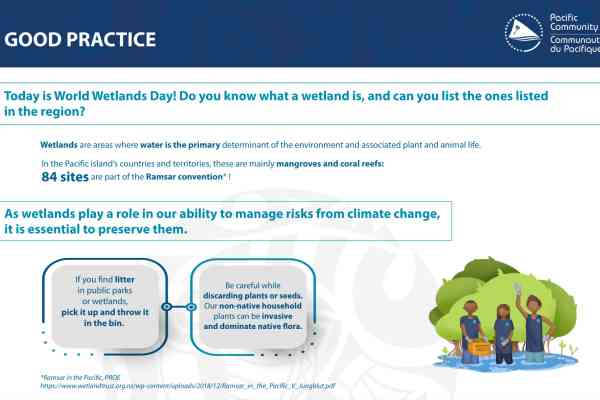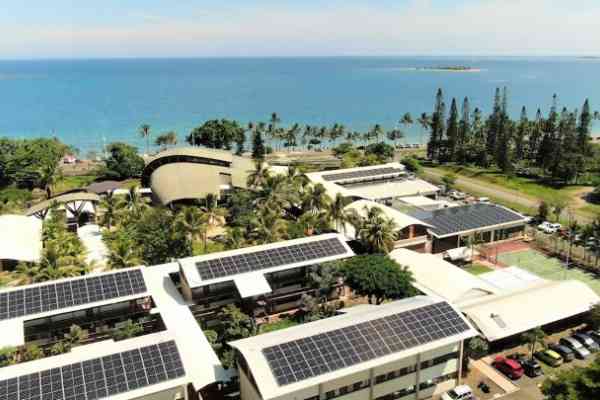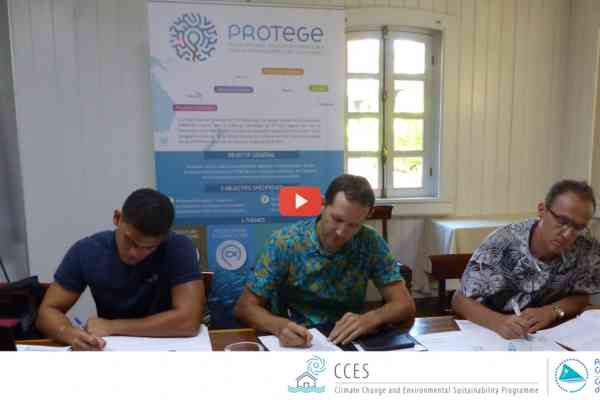Sustainability and climate resilience are among SPC’s major cross-cutting topics. As such, it is crucial for our institution to be exemplary in those areas.
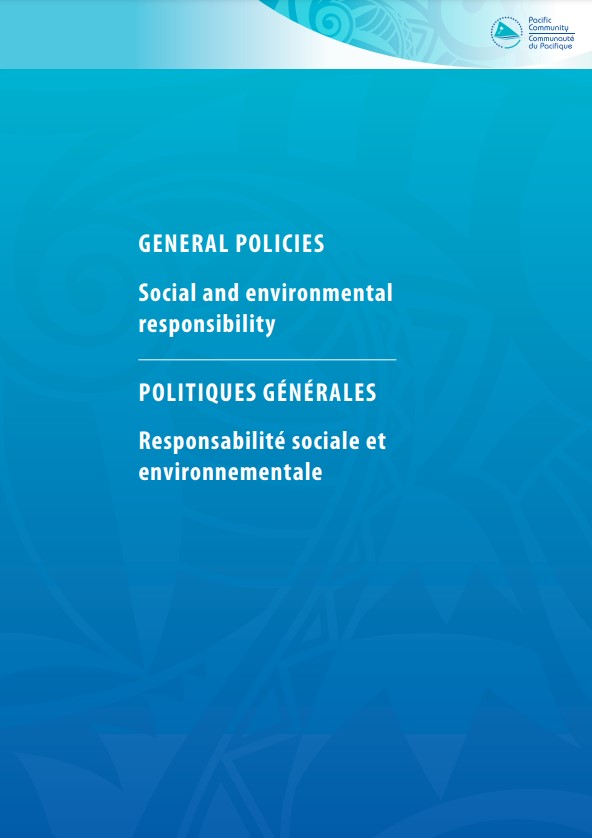
In the past six years, SPC has improved its social and environmental performance and managed to:
- Reduce its carbon footprint by one third;
- Improve the accountability of its corporate operations;
- Raise social and environmental awareness among regional partners.
In addition, the Climate change and environmental sustainability Programme, in collaboration with the Human Rights and Social Development (HRSD) Division has developed SPC's Social and Environmental Responsibility (SER) Policy.
The SER policy provides a framework, including guiding principles, for SPC to ethically and sustainably manage social and environmental risks and impacts of all its activities, and to enhance social and environmental benefits. This will be done in an inclusive manner, with a people-centred approach so as to maximise whole-of-society benefits.
A people-centred approach is particularly important in the Pacific context, as issues of human rights, gender equality and social inclusion, youth and persons with disabilities, cut across all areas of development work. A people-centred approach is underpinned by a recognition of the importance of the Pacific cultural context in understanding our development challenges.
Social and Environmental Responsibility at SPC Brochure
SPC's SER approach is part of the institution's 2022-2030 strategic plan, which is developed in line with the 17 Sustainable Development Goals and includes resilience and climate action as its primary mission.
SPC's SER policy has 3 pillars: SPC People, SPC Operations, and SPC Programmes
 PILLAR 1 - SPC people
PILLAR 1 - SPC people
Objective: to provide SPC staff with a workplace that promotes diversity and inclusion, guarantees equal rights, and provides for a safe, healthy and dynamic working environment.
To this end, SPC commits to develop policies and procedures for human resources and related areas, in order to achieve the following outcomes:
- Diversity, social inclusion, gender equality are addressed and strengthened in the workplace
- Staff are aware, sensitized and encouraged to contribute to a respectful, cooperative and professionally conducive work environment;
- Staff lead initiatives and champion good practices and innovation that strengthen SPC’s role as an ethical, socially responsible and environmentally sustainable organisation.
PILLAR 2 - SPC operations
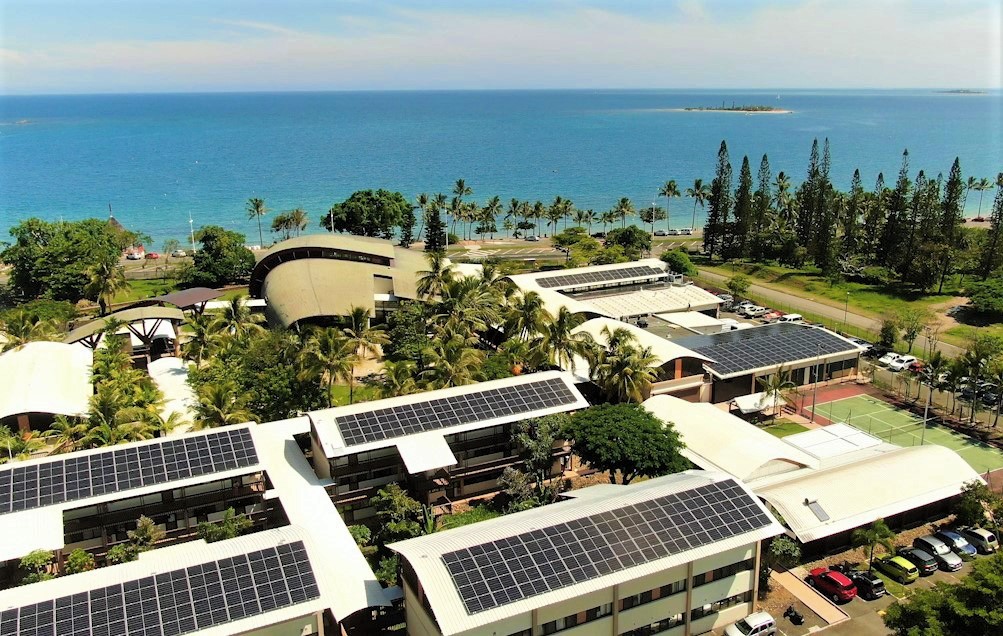
Objective: greening SPC to make it an accountable organisation in the face of climate change and biodiversity loss.
This involves the assessment of SPC’s carbon footprint through an annual Green House Gas (GHG) inventory, to ensure that all SPC emissions are fully and accurately monitored to infer robust projections and trends. It also involves the implementation of actions aiming at reducing SPC’s carbon and ecological footprints with a focus on efficiency and accountability in the following dimensions: energy, travel, water, waste, events, and procurement. Expected outcomes include:
- To showcase SPC’s ecological awareness, including through best practices shared with regional organisations;
- To make purchases and operations as “green” as possible, in particular through SPC procurement and travel policies: for instance, SPC is promoting the organisation of carbon-neutral events by minimising GHG emissions or offsetting them if they are unavoidable, using certified offsetting projects;
- To improve the energy efficiency of SPC premises and properties, based on energy audits recommendations;
- To coordinate the implementation of carbon compensation actions for residual emissions.
PILLAR 3 - SPC programmes
Objective: Designing a robust social and environmental management system (ESMS) supporting programmes and projects to deliver activities that maximise social benefits, by preventing or, where not possible, mitigating any significant or unjustified social and environmental impacts, in line with Performance standards 1-8 of the Green Climate Fund (GCF).
SPC has established a set of management procedures to assess environmental and social risks and impacts from project activities, proportionate to the nature and scale of the projects and commensurate with the level of SPC’s commitment to addressing environmental and social risks and impacts.
Major outcomes for this series of management procedures include:
- An assessment of environmental and social impacts and risks for every project at the pre-approval stage;
- A more thorough assessment ('Topic assessment' or 'Environmental and Social Impact Assessment') if significant risks or impacts are identified;
- Monitoring risk mitigation measures during project implementation phases;
- Strengthened procedures allowing stakeholder engagement; and
- Grievance mechanisms available to potentially affected communities.
SER Green Tips
More information?
Please contact Aude Chenet, SPC's Environmental Sustainability Coordinator: [email protected]

